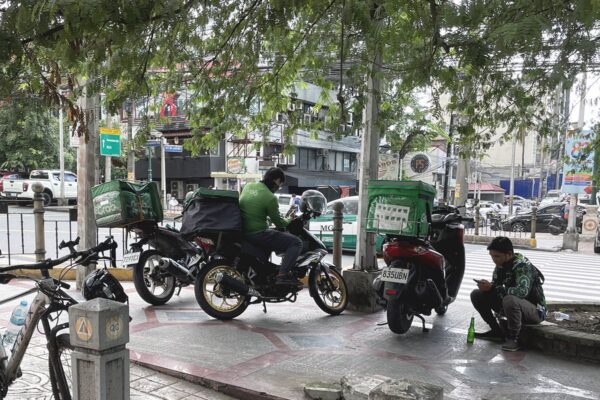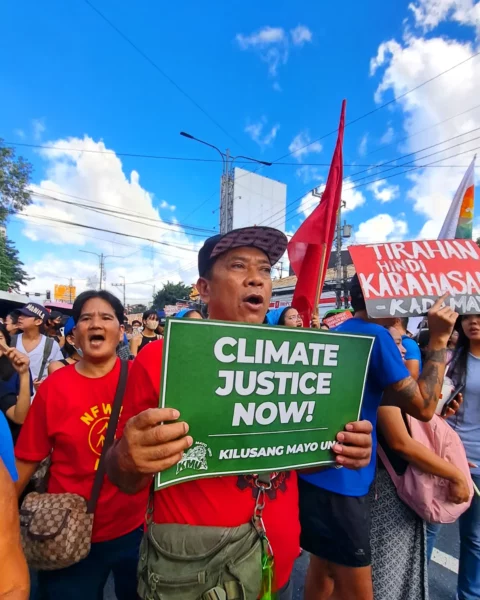
By empowering trade unions and building their capacities, SASK aims to enforce international labour rights, promoting decent work and living wages, and thus supporting the struggle against poverty and social inequality.
Decent Work
By decent work, we mean people should have access to regulated, safe, and healthy work that guarantees a living wage. As far as the core labour standards are concerned, we refer to the International Labour Organization ILO.
Living Wages
A living wage refers to a wage that enables a person to support themselves and their families reasonably. The salary must be sufficient for nutritious food, housing, and other necessities of life, and it must be possible to save a little for a rainy day.
However, a living wage is very often not achieved in developing countries, and ordinary workers do not usually achieve it.
A living wage is different from the minimum wage set by the government. The minimum wage is a political compromise, and the result is often far from a standard that is truly sufficient for living. In many countries, the purchasing power of wages is also eroded by soaring inflation.
Fundamental Principles and Rights at Work
SASK’s work is based on the fundamental principles and rights at work, defined by the ILO.
- Freedom of association and the right to collective bargaining
- Elimination of forced labour
- Effective abolition of child labour
- Elimination of discrimination in respect of employment and occupation
- Safe and healthy working environment.
Our long-term goal is that these core labour standards are respected around the world. Primarily, we can exert influence in the main countries where we operate.
In addition to these core labour standards, several other conventions have been agreed on within the ILO to address specific problems in certain areas.
Several SASK projects aim to ratify such a convention, like the Convention C180 against violence and harassment and C189 on domestic workers’ rights. Once the convention is ratified, SASK often supports its implementation through local trade unions and confederations.
ILO states clearly that labour rights are human rights. The work of SASK is based on the same idea.
Where We Work
SASK has dozens of development cooperation projects in
- South and Southeast Asia (India, Nepal, Indonesia, The Philippines)
- Africa (multiple countries)
- Latin America (Colombia, Brazil).
Our partners are usually Global Union Federations and trade unions.

How We Work
We support the reduction of poverty and inequality and promote decent work and living wages by strengthening the trade union movement and the position of workers in developing countries through our development cooperation programme.
Poverty can be reduced through collective agreements and social policies that enable the working population to gain their share of national development and wealth. Poverty and inequality are also reduced by promoting social inclusion and increasing people’s opportunities to participate actively in social processes.
Trade unionism is a sustainable tool for improving the opportunities of the working population to influence social policies and to reduce inequality. That is why SASK works with the trade union movement, and research and training organisations that support its goals.
SASK was founded by the Central Organisation of Finnish Trade Unions SAK and its affiliated unions in 1986. Since then, SASK has become a widely representative solidarity body of the Finnish trade union movement with two central organisations and 35 national federations as affiliated members.
SASK’s main funding source is the government grant for development cooperation. The other important funder is the Finnish trade union movement. The latest funding decision from the Ministry for Foreign Affairs cuts our funding significantly. Unfortunately, this diminishes the scope of our work.
Results of Our Work
How has SASK’s support benefited the workers in the Global South? See our latest report report (pdf).
Our Themes
Besides ensuring the core labour standards defined by the ILO, SASK focuses on three themes that are evident in our programme.
Code of Ethics
SASK’s Code of Ethics (pdf) guides all its operations, procedures, and organisational culture. SASK expects all actors to adhere to the Code of Ethics, to set an example for others, and to inform if the Code of Ethics is violated.
Do you Suspect Misconduct?
If you suspect misconduct in SASK’s operations, use this online form to express your concern or suspicion of misconduct.
We take all misconduct and suspicions of misconduct seriously. If you so wish, you can express your concern anonymously.
Need our Logo?
Download SASK logos here.
Contact us
Trade Union Solidarity Centre of Finland SASK
Address: Hämeentie 19 A, 00500 Helsinki, Finland
Director
Juska Kivioja
Executive Director
+358 50 581 4372
juska.kivioja@sask.fi
International Operations
Juha Vauhkonen
Head of International Operations
Core labour rights
Living wages
+358 45 139 7119
juha.vauhkonen@sask.fi
Anna Perttula
Specialist, Just transition
+358 40 541 6155
anna.perttula@sask.fi
Camilla Lohenoja
Specialist,
Digitalisation and
the new forms of work
+358 45 206 6840
camilla.lohenoja@sask.fi
Anton Hausen
Specialist,
Equality and non-discrimination
+358 50 355 0230
anton.hausen@sask.fi
Regional Representatives
Simião Simbine
Regional Representative for Africa
Maputo, Mozambique
+258 82 3008534
simiao.simbine@sask.fi
SASK Africa Office
Rua da Imprensa, 256 – Sobreloja nº 5
Prédio dos 33 Andares, Maputo
Mozambique
Farizan Fajari
Regional Representative for Asia
Jakarta, Indonesia
+62 815 1623 634
farizan.fajari@sask.fi
SASK Asia Office
Ruko Food Plaza 1 No. 53 Cibubur Country Cikeas
Jl. Letda Nasir No. 8, Cikeas
Kab. Bogor, Jawa Barat 16966
Indonesia
Gabriel Casnati
Regional Representative for Latin America
São Paulo, Brazil
+55 11 94243 7876
gabriel.casnati@sask.fi
Communications and Advocacy
Ellinoora Vesala
Head of Partnerships
+358 50 461 9307
ellinoora.vesala@sask.fi
Laura Ventä
Specialist, Communications
+358 44 024 1275
laura.venta@sask.fi
Roosa Rusanen
Specialist, Civic Engagement
+358 50 309 9517
roosa.rusanen@sask.fi
Administration
Ville Hirsikangas
Head of Finance
+358 50 3367584
ville.hirsikangas@sask.fi
Heli Kallio
Administrative Assistant
+358 44 751 8817
heli.kallio@sask.fi
Milla Leppänen
Officer, Quality and Impact
+358 50 4839984
milla.leppanen@sask.fi
SASK Board 2025–2026
Chairmen of the Board
Kokko Ismo, Finnish Transport Workers’ Union, AKT (chairman)
Haikonen Jaakko, STTK (vice-chairman)
Piirainen Marko, The Central Organisation of Finnish Trade Unions, SAK (vice-chairman)
Members (in alphabetical order)
Arnkil Jenni, Trade Union of Education, OAJ
Haapalainen Susanna, Trade Union for Public and Welfare Sectors in Finland, JHL
Hakkarainen Mikko, Industrial Union
Koivuniemi Sari, Union of Health and Social Care Professionals in Finland, Tehy
Koskinen Matti, Trade Union Pro
Kreutzman Nina, The Finnish Construction Trade Union
Rönni-Sällinen Annika, Service Union United, PAM
Väänänen Lea, Finnish Food Workers’ Union, SEL
Supplementary Members
Takolander Hanna, Social Science Professionals
Maunula Annika, Paper Workers’ Union
Pia Björkbacka, The Central Organisation of Finnish Trade Unions, SAK
Maria Häggman, STTK


